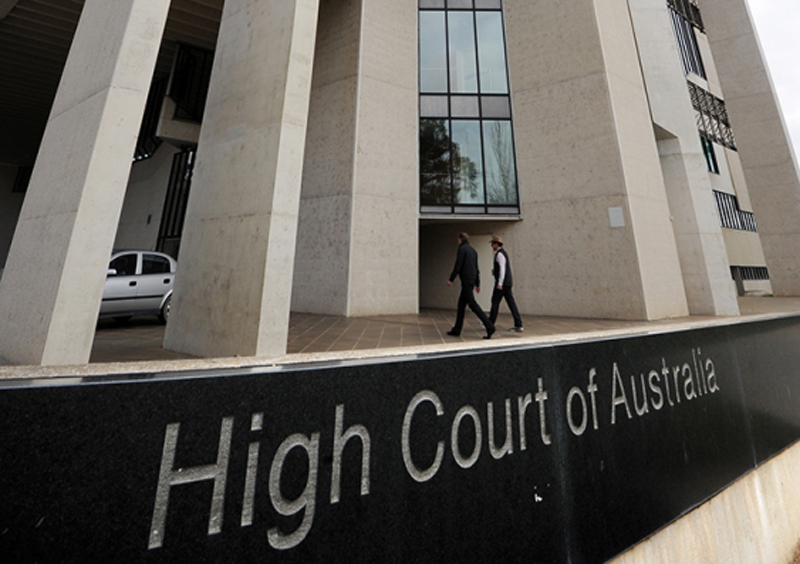Australia’s High Court ruled Wednesday that forcing migrants to wear electronic tracking bracelets and observe curfews is unconstitutional, dealing a significant blow to the government’s controversial monitoring system for non-citizens with criminal records.
In a 5-2 decision, the court found that the restrictive conditions imposed on more than 100 migrants amounted to punishment, which under Australia’s constitution can only be imposed by judges, not legislators. The ruling effectively ends the government’s authority to electronically track over 200 non-citizens who were released from detention but cannot be deported.

Home Affairs Minister Tony Burke announced plans to introduce new legislation Thursday for “an adjusted process for electronic monitoring devices and curfews,” though specific details weren’t provided. “The court’s decision is not the one the government wanted — but it is one the government has prepared for,” Burke said in a statement, emphasizing that “the security and safety of the Australian community will always be the absolute priority.”
The case challenging the monitoring system was brought by a 36-year-old stateless man identified as YBFZ, who fled Eritrea with his family as Jehovah’s Witnesses seeking refuge. After arriving in Australia in 2002, his refugee visa was revoked in 2017 following multiple convictions, including burglary and recklessly causing injury, during a decade-long period.
The ruling follows a previous High Court decision in December that outlawed indefinite detention of non-citizens, overturning a 28-year-old precedent. That earlier case involved a stateless Rohingya man and prompted the emergency legislation that established the electronic monitoring system now deemed unconstitutional.
David Manne, YBFZ’s lawyer, hailed Wednesday’s verdict as a “major victory” for fundamental freedoms. “This is an important ruling because it underscores the bedrock principle that for everyone, whether citizen or non-citizen, the government does not have the power to punish people by stripping them of their fundamental rights to freedom and dignity,” Manne told reporters.
Opposition lawmakers criticized the ruling as an “embarrassing loss” for the government, warning that 215 non-citizen offenders, including 12 murderers, 66 sex offenders, 97 people convicted of assault, and 15 domestic violence perpetrators, would now be free from monitoring restrictions.



